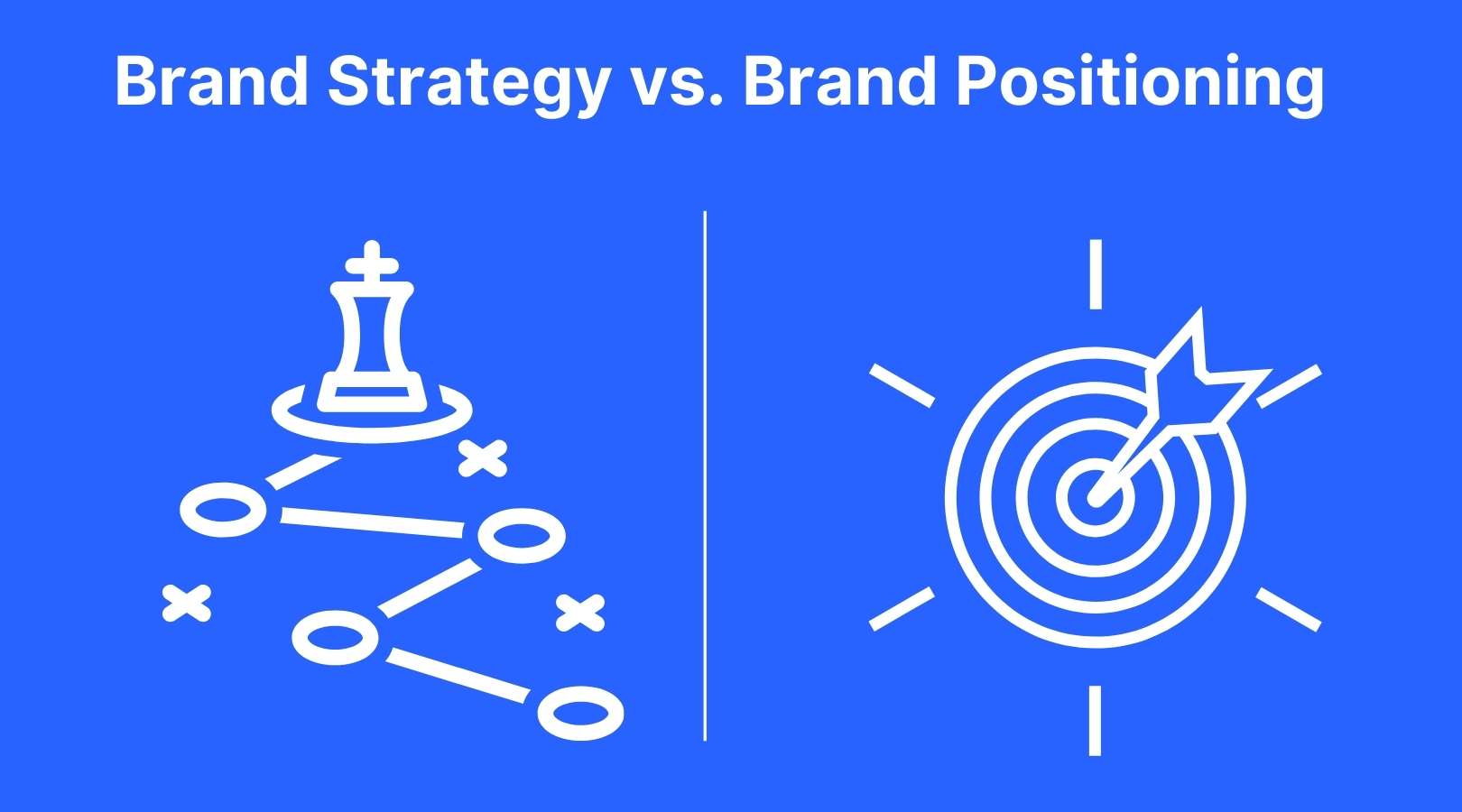They’re often confused, but they’re different concepts. Brand positioning is how a brand is positioned, including its unique value proposition, messaging, and target audience. It’s the tip of the spear when it comes to branding.
Brand strategy is the overall approach to branding that includes all aspects of the brand identity, including positioning, messaging, visual identity, and more. Simply put, brand positioning is a key part of the overall brand strategy.
Here are a few things to remember:
Brand positioning is your brand’s visible face, while brand strategy is the underlying framework. Brand positioning is how your target audience perceives your brand, while brand strategy focuses on how your brand delivers value to customers. Clear and compelling brand positioning helps you stand out in a competitive landscape and attract the right customers.
Your brand strategy should be grounded in your unique value proposition and inform all aspects of your marketing, including your website, social media, and advertising campaigns. A well-crafted brand strategy drives growth, and like brand positioning, it evolves over time.
A brand strategy includes key elements like:
– Value proposition: clearly identifies the benefits your product delivers to its customers.
– Target audience: spotlight the people who matter to you.
– Brand identity: Your brand’s visual, verbal, and experiential elements.
– Brand messaging: The language and tone used to communicate with your target audience.
– Brand positioning: How your brand is different, unique, or better.
– Brand experience: The overall experience a customer has with your brand, from the moment they first encounter it to their ongoing interactions with it.
While dismissing brand positioning and strategy as nice-to-have is easy, they’re crucial business pillars. They underpin everything: marketing, sales, product development, HR, customer success, and raising capital. Without them, you risk having a generic brand that blends into the crowd.



